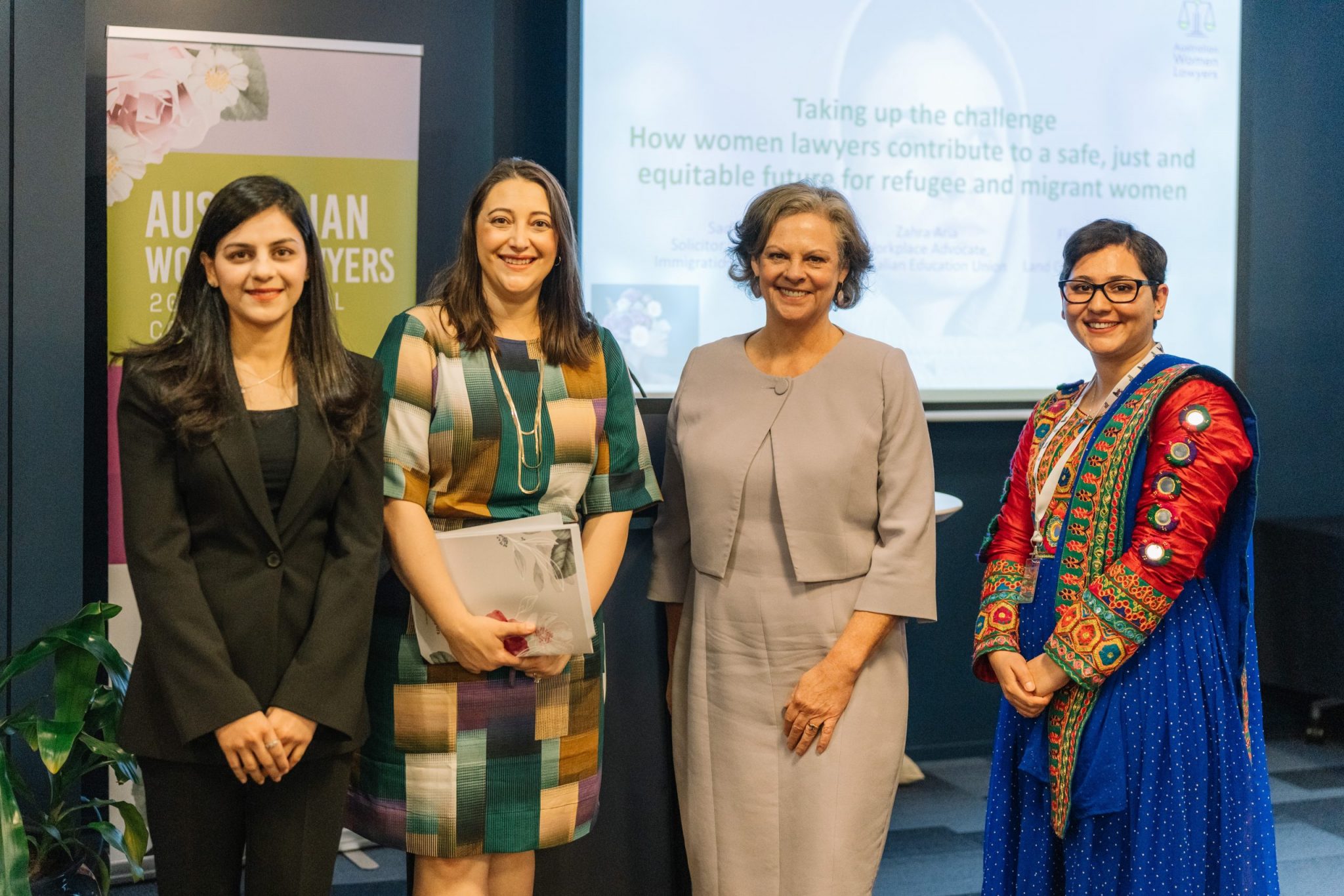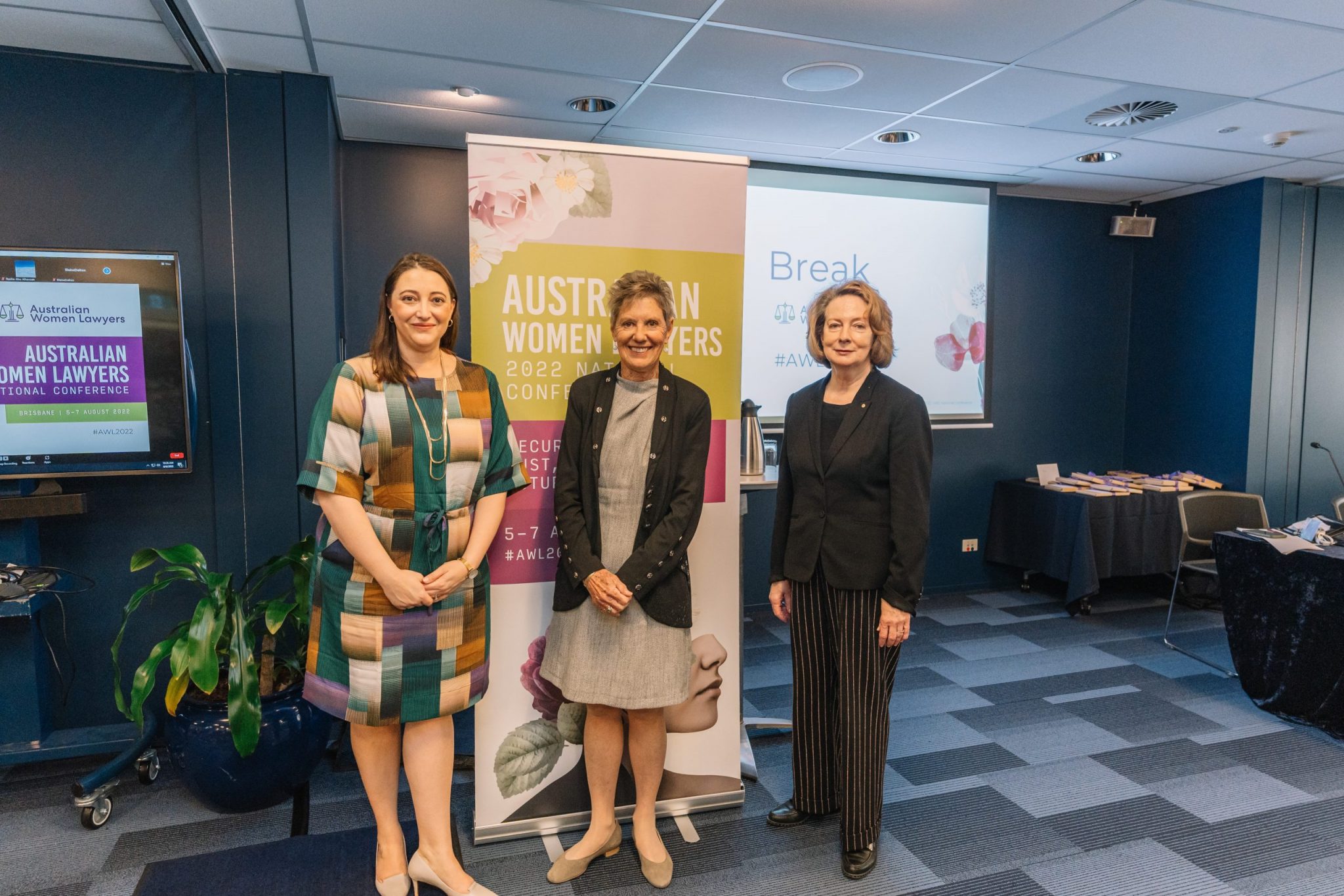04 Nov AWL Conference 2022
AWL Conference 2022 – Anastasia Lima-Marques
It was an absolute pleasure to receive the scholarship to attend the 2022 National Australian Women Lawyers Conference in Brisbane this year. I had no hesitation in applying for the scholarship. Currently working at a new and emerging legal practice means we don’t usually have the funds to attend such conferences or events. However, Debra Spizzo & Associates has been built on the energy of capable women who are in turn helping vulnerable people navigate a complicated, and sometimes unforgiving, legal world. Many of our clients are funded by legal aid. Many have been subjected to domestic violence and are culturally and linguistically diverse. Me, taking the time away from work and leaving my small children for the weekend for a conference was a trade-off my employer said I should take.
This was my first attendance at the conference, and my first ever conference dedicated to women lawyers. Upon attending the conference, we were treated to an exceptional welcome to country by song woman Maroochy Barambah. This beautiful introduction set the tone for the remainder of the day. I surrendered to the chatter of other women, enjoying the opportunity to network with my colleagues from around Australia. A definite change from the sounds of my children competing for my attention.
On the first day of the conference, I heard the exceptional stories of Sadia and Zahra, who had fled oppressive and violent backgrounds in their native countries. It became clear to me that these systemic issues facing women were not going to be a glossed over in an ostentatious conference.
I felt oddly relieved and satisfied that such issues were being talked about directly and with genuine emphasis on resolutions to such issues. It showed, in varying degrees, women from all backgrounds face similar barriers to receiving equal opportunities in the workplace, and in some countries, it is a barrier just simply being a woman.
I was particularly interested and invested in listening to the panel of women discussing economic and financial security in the modern workplace. As a young and single mother-of-two myself, I remember listening in anticipation to see how I could make the best of my situation and prayed there was some miracle solution to making my working life easier. Perhaps it was naive of me, but I was surprised that my situation was not uncommon, and I was almost comforted to hear stories of other women and mothers who had to juggle many tasks to get the job done as a lawyer.
I learned quickly that the solution probably lay with me, and that flexibility in the workplace as a lawyer is imperative. Flexibility in thinking about work practices is also important for current legal practice managers. I was also appreciative with how accommodating my current workplace is and I felt more grateful than ever to have a woman manager who understood the complexities that women face in the workplace, especially when they have children or are a single parent. The question did linger in my mind though; did men understand it as well as women did? And if not, how do we get them to listen? Would my manager be as accommodating if she were a male?
A key highlight of this panel was the suggestion of job-sharing, and I really liked the idea of being more accommodating to the option of job-sharing for women. I was surprised that it was not undertaken more in the legal field. I then realised that if we are vocal and adamant about what we need in the workplace, change must follow. If the work gets done and sound outcomes for clients are achieved, what does it matter when and where the work is completed. It can be done between school drop offs and pickup with flexible work practices.
It occurs to me that advancement of women in the legal profession cannot be done without women lawyers speaking up, leading and advocating for flexible practices being adopted. Engagement with the Australian Women Lawyers and Women’s Lawyers Association of SA is a vehicle for creating sustainable change to work practices. I see these organisations as a united vehicle and voice for change.
I came away from the conference feeling like I had learned something. It was not a conference where I was looking at the clock wondering when it was time to head back to the hotel and taking a nap. I realised I was engaged with the issues spoken about. The issues discussed directly affected me as a woman, a lawyer and a carer.
During this conference, I was able to reflect on how far women have advanced in the legal profession and how much further we must go to integrate work practices that support lawyers with children and those with caring responsibilities generally. In some cases, those responsible for caring are not always the woman. Why is it the women leaders making a noise for sustainable change? It seems to me that family life and work life balance will improve for everyone, including our male counterparts, if we adopt flexible work environments as suggested at this conference.
One idea the resonated with me was having a playroom at the practice. If this was available, I would use this on those days when alternative care is not available. I could easy imagine my young daughter amusing herself while I finished off an important piece of work or attended a meeting with a client.
I want to thank the Women’s Lawyers Association of South Australia for providing me with the scholarship to attend the National Conference. I acknowledge my workplace for encouraging me to attend. My employer and the Women’s Lawyers Association have shown how important it is to have united women leadership to give a voice to sustainable change in work practices. Law is an ever-changing dynamic profession. This conference has been a catalyst for my discussions with our firm’s principal about what it is needed to support myself and my women colleagues to manage our professional commitments with our caring responsibilities. Change is happening.





